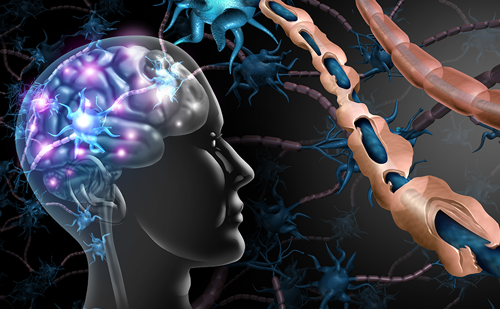Misconceptions about family planning with multiple sclerosis (MS) persist, according to a recent survey of women aged 25–35 years diagnosed with relapsing forms of MS (RMS) in the last five years.
- Eighty-eight percent of survey respondents (n=1,000) were concerned at diagnosis they would not be able to have children, despite studies that show they are just as likely to conceive and have healthy children as anyone else.1
- Sixty-two percent of respondents who had any concerns about their ability to have children, were also concerned they had the potential to pass the disease on to their children, even though MS is not considered to be hereditary.2
Multiple sclerosis (MS) is more common among women of childbearing age compared with any other age group, with onset usually occurring at the age of 20–40 years.3 MS can be life changing, but it does not necessarily mean that women cannot have a family if they wish.
As part of their commitment to the MS community, Teva Pharmaceuticals initiated a survey of 1,000 European women aged 25–35 years who had recently been diagnosed with RMS, to explore attitudes and experiences surrounding family planning. The survey was conducted by Wakefield Research in Germany, Italy, the Netherlands, Spain and the United Kingdom (UK). The survey shows that misconceptions about family planning with MS persist, and underscores the need for better dialogue between women with RMS and healthcare professionals (HCPs).
To help educate women with MS about family planning and help them have better conversations with their healthcare team about this topic, Teva worked with touchNEUROLOGY®, the online publication partner to European Neurological Review, to publish a ‘MS and Family Planning Toolkit’. The toolkit includes resources for women with MS, such as:
- family planning questions for women with MS to ask their healthcare team;
- facts on MS and family planning for women with MS; and
- tips for women with MS on family planning.
It is important that women with MS who would like a family now or in the future talk to their HCPs openly so that any misconceptions are addressed and women are better informed about their options. With proper information and advice, women with MS can be more empowered to make decisions with their HCPs about having a family.
Family planning questions for women with multiple sclerosis to ask their healthcare team
MS is more prevalent among women of childbearing age than any other age group, with onset usually occurring at the age of 20–40 years.3 Whether you are ready to start a family now or think it may be in your future, it is important to discuss these questions with your healthcare team when you are diagnosed so you can best prepare for your future. Many women go on to have children after an MS diagnosis and are just as likely to conceive and have healthy children as anyone else.4
Staying informed and talking with your neurologist/MS healthcare team is an important part of managing your MS. If you are thinking about planning a family, it is also important to involve your obstetrician/gynaecologist. It may also be helpful to find a therapist or counsellor that is knowledgeable about MS for discussions that go beyond your medical visits. The goal of these questions is to help you engage in deeper and more meaningful conversations about your future with your full healthcare team.
Below are suggested questions to ask your healthcare providers as early in your MS journey as possible, to facilitate discussions that will set you up to better navigate the road ahead.
- If I would like to get pregnant someday (but not in the near future), what should I start thinking about now?
- If I want to get pregnant now/in the very near future, what should I start doing now to plan for that?
- Does wanting a family impact my treatment plan?
- Do I need to use contraception while I am on MS medication?
- Do I need to stop treatment if I want to get pregnant?
- Are any symptoms worsened during pregnancy?
- Will I be able to stay on my medication while I am trying to conceive?
- Will I be able to stay on my medication while I am pregnant?
- Will I be able to stay on medication if I breastfeed?
- What type of anaesthesia is safe for a person with MS?
- What should I expect when I give birth?
- What should I expect during the post-partum stage?
- What is my risk of having a relapse during the post-partum period?
- What is my child’s risk of developing MS?
- Can I take pre-natal vitamins?
- Can I remain active/exercise during pregnancy?
- Are there any other specialists I should look into, such as nutritionists or physical therapists?
- Where can I find more information on family planning with MS?
- Are you aware of any educational seminars or services for women with MS who are planning a family, or for new mothers?
Multiple sclerosis and family planning fact sheet
MS is a chronic, unpredictable and progressive disease of the central nervous system (CNS), which is made up of the brain and spinal cord.5 In MS, the loss of myelin, which is a sheath that forms around the nerves, leads to disruptions in the transmission of electrical impulses to and from the brain, causing MS symptoms.6 MS can cause a variety of neurological symptoms, which for many people can flare up and then subside over the course of days, months, or even years.
The symptoms experienced by MS patients can vary significantly, but the most common symptoms experienced include some combination of fatigue, vision problems, numbness and tingling, muscle spasms, stiffness and weakness, mobility problems, pain, problems with thinking, learning and planning, depression and anxiety, sexual problems, bladder problems, bowel problems,7 and speech and swallowing difficulties.8
Know the facts about multiple sclerosis
Types of multiple sclerosis
MS affects everyone differently, but there are three main types of MS: RMS, primary progressive multiple sclerosis (PPMS) and secondary progressive multiple sclerosis (SPMS).9
Relapsing forms of MS are the most common type of MS. A person with RMS experiences attacks of worsening neurological functioning (also called relapses or exacerbations), followed by periods of remission in which partial or complete recovery occurs.10
At onset, approximately 80% of people with MS have RMS, and >65% of these develop SPMS later on in the course of the disease. The remaining ~20% have PPMS.11
SPMS is identified by a sustained build-up of disability independent of relapse, and can be difficult to diagnose. However, people’s experience of SPMS can vary widely.12 With PPMS, symptoms gradually get worse over time, rather than appearing as sudden attacks (relapses).13
Prevalence
There are around 2,300,000 people living with MS worldwide and an estimated 500,000 to 700,000 people in Europe with the condition.14 Although MS is found in all parts of the world, its prevalence varies greatly, being highest in North America and Europe, and lowest in sub-Saharan Africa and East Asia.15
What causes multiple sclerosis?
The cause of MS is unknown. It has, however, been suggested that MS is likely to be caused by a mix of genetic, environmental and/or lifestyle factors.16
Demographic
MS affects more women than men, and it is estimated that roughly between two and three women have MS for every man with the condition.17
Know the facts about multiple sclerosis and pregnancy
Multiple sclerosis and family planning
MS is more prevalent among women of childbearing age than any other age group,3 with onset usually at the age of 20–40 years.3 Many women go on to have children after diagnosis.4 Women with MS are just as likely to conceive and have healthy children as anyone else.1
Fertility
MS is not known to significantly affect fertility.2 Women with MS who are trying to conceive should speak with their healthcare team to discuss any concerns.18 It is also important to know that 43% of pregnancies in Europe are unintended.19 Women with MS who think they may have become pregnant unexpectedly should speak to a healthcare practitioner right away, so they can best manage their pregnancy and their MS.
Pregnancy and delivery
There is a great amount of research to show that women with MS go through healthy pregnancies just like anyone else.2 For example, babies born to mothers with MS do not have a significantly different average gestational age or birth weight compared to mothers without MS.20 Also, pregnancy does not speed up or worsen MS – in fact, researchers have discovered that pregnancy can have beneficial effects on the mother’s health during pregnancy.2
Risk of passing on multiple sclerosis
MS is not considered to be hereditary, and children of a parent with MS have a 4.0% risk of developing the condition themselves, which is the same rate as the frequency of birth defects in the general population. The general population has a 0.2% risk of developing MS.2
Relapses
Research in thousands of women has shown that women with MS tend to experience fewer relapses during pregnancy, particularly in the third trimester.2 However, relapse rates often increase within the first 3 months after birth.2
Fatigue
Fatigue is a common symptom of MS, so as a new mother with MS, tiredness may take a bit more managing.21 Women with MS who are new mothers may want to seek support around the first few months if possible, and get plenty of rest.
MS medication during pregnancy
None of the MS treatments are approved for use during pregnancy.22 However, for pregnant women with severe or highly active MS, the benefit of certain treatments may outweigh the unknown risk to the foetus, and this is a decision to be made by the treating physician.18
Breastfeeding
For women taking MS treatments, breastfeeding is not recommended,3 but this should be discussed with a healthcare practitioner.4
Family planning tips for women with multiple sclerosis
Starting a family can be a big step for many women. Being diagnosed with MS may leave you with questions and concerns about becoming pregnant and planning for a family.
Many women with MS go on to become mothers after their diagnosis. Speaking to your healthcare team as early as possible about your personal thoughts on this matter can help you manage your MS and your journey through parenthood.
In addition, there are many proactive strategies and tips women can incorporate into their current lifestyle to help support them through their journey. The following tips offer guidance on how to build a healthy and balanced lifestyle if you are planning a family.
- Whether you are ready to start a family now or sometime in the future, it is important to share your plans with your healthcare team as soon as possible, so they can work with you to manage your symptoms and disease course as you try to conceive, and while you are pregnant or breastfeeding.23
- When speaking with your healthcare team about planning for a family, make sure to consider every stage – from trying to conceive through pregnancy, the post-partum period and breastfeeding. The more knowledge you have in advance, the better prepared you will be to navigate this exciting time in your life.23
- If you don’t have one already, take the time to build a solid support network of reliable friends and family on whom you are comfortable calling for support. While pregnancy and childbearing are wonderful stages in life, they can also be very physically and emotionally demanding.23
- Although pregnancy has been shown to have beneficial effects on MS, some women may find themselves experiencing a relapse within the first 3 months after birth. Consider having a conversation with your partner about any extra support you may need around that time, or asking for help from family and friends. The key thing is to start early – once you have decided to have a baby, start thinking about how you can make the period immediately after birth as easy as possible for yourself.22
- Some MS symptoms can become worse during pregnancy. Talk to your obstetrician/gynaecologist, MS nurse and/or midwife about the impact of pregnancy on your body, to create an individualised plan.23
- Pregnant women with MS are more prone to urinary tract infections. Drinking water and getting monthly urine tests can help prevent this from happening.1
- A healthy diet, adequate rest and exercise are all essential to feeling one’s best. A healthy diet includes eating foods that are high in vitamin D, which may have important effects on the immune system and help regulate cell growth. Vitamin D can be found in almond milk, egg yolks and oatmeal.24 The National Institute for Health and Care Excellence (NICE) recommends daily supplementation of 400 units (10 mcg).25
- Depression is more common in people with MS than in the general population. Track your feelings and mood changes and be sure to report them to your HCP to help manage depression.26
- Put together a plan to help you manage stressful situations, such as what to do if you are feeling ill and who to contact when you need support.
- Consider joining a support group to share experiences with other women and/or new mothers who have MS. It is an opportunity to learn new tips, as well as to enjoy sharing experiences. Talking through your concerns can help manage your stress.













